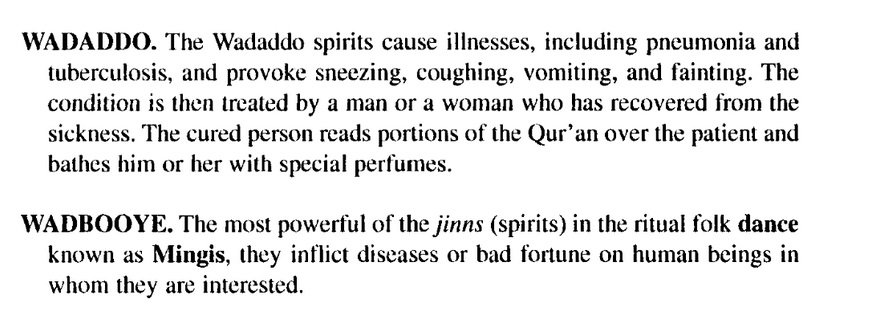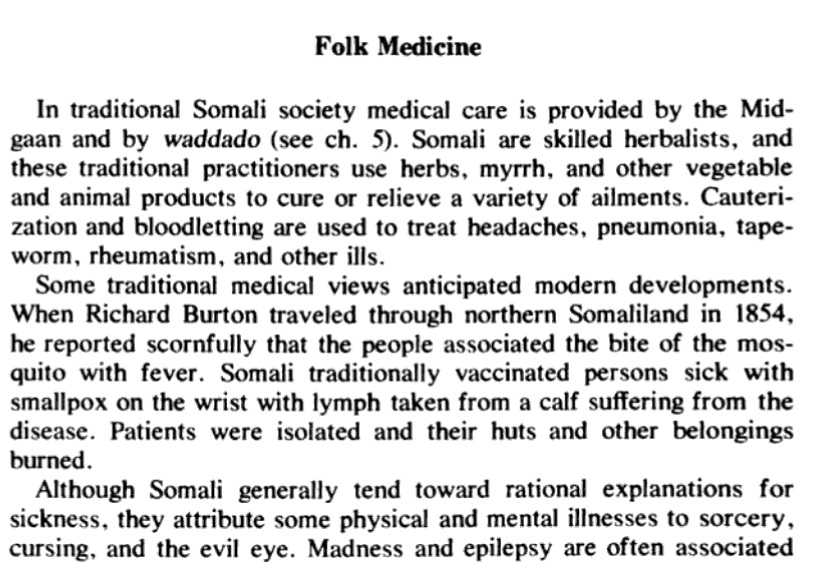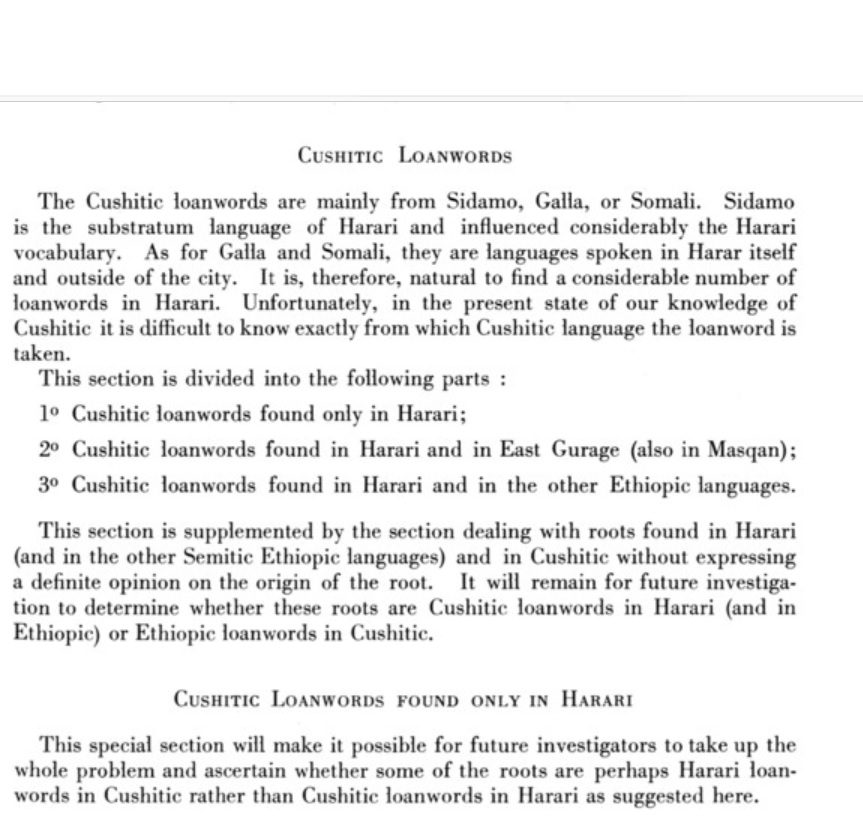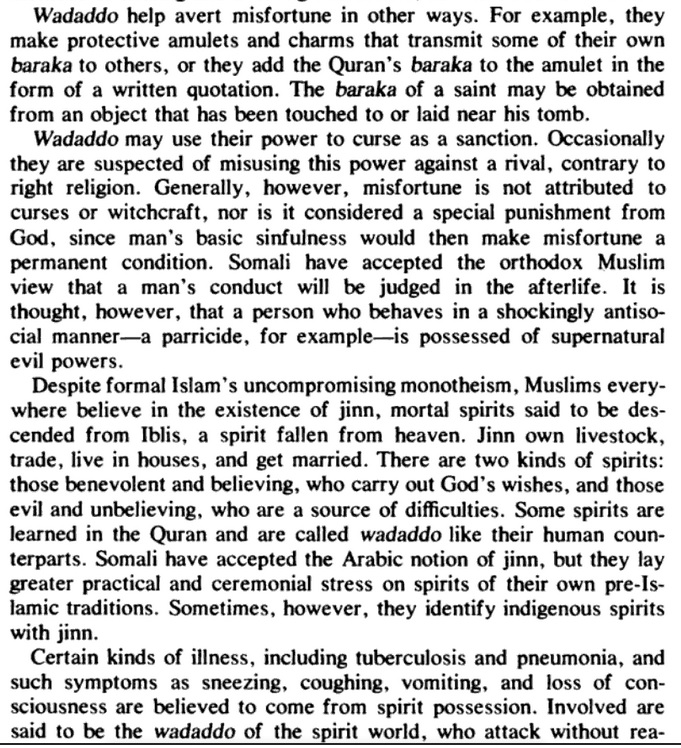Yh haven't you heard of doro wot or however it's spelt? Although I'm pretty it's a borrowing on their part from cushitic
You are using an out of date browser. It may not display this or other websites correctly.
You should upgrade or use an alternative browser.
You should upgrade or use an alternative browser.
Etymology of the word "Wadaad"
- Thread starter Al-Ma'mun
- Start date
Dooro is in Amharic although it is Cushitic borrowing into Amharic probably from one of the Agaw languages (North Cushitic branch)
Arabsiyawi
HA Activist.
Dooro is a native Cushitic word, has cognates in a lot of different Cushitic languages. It obviously is a loanword in Semitic languages of the Horn since it doesn’t have any equivalent in other Semitic groups.
Xaar is the complete opposite. Common cognate in Semitic languages and absent in Cushitic ones.
GOD LORDDooro is a native Cushitic word, has cognates in a lot of different Cushitic languages. It obviously is a loanword in Semitic languages of the Horn since it doesn’t have any equivalent in other Semitic groups.
Xaar is the complete opposite. Common cognate in Semitic languages and absent in Cushitic ones.
One question: Do these Ethio-Semtic cognates has the same meaning for Xaar?
Arabsiyawi
HA Activist.
Your question makes no sense wtfGOD LORD
One question: Do these Ethio-Semtic cognates has the same meaning for Xaar?
Idilinaa
VIP
I was reading a book called "The Other Abysinnians: The Northern Oromo and the Creation Of Modern Ethiopia" and came across this line
Reminded me of Wadaad, so I decided to see if the Harari language has this so I downloaded a Harari dictionary and this is what I found.
View attachment 234003
View attachment 234004
I'm not sure if this is a direct loanword from Harari or if it's an Ancient Ethio-Semitic loanword we got from a language or people that once in lived near us (like the Harla)
It always amazes me how far you will go to draw Semetic/Jewish/Arab connections without looking at Somali culture and etymologies or our most related cushitic cousins the region for possible clues and explanations. Sometimes words could just emnate from a common cushitic source, so thats the first go to.
I similarly corrected you on a different thread and multiple times before about Yibir that they have zero Jewish or semetic roots and the evidence just shows how they have pagan affiliations and used to likely be pillars/priests of the old religious Somali cult: Yibir's Hebrew affiliations a recent fabrication
Likewise the term Wadaad , more correctly spelled Waddad, plural Waddado is linked to the same pagan religious cult more specifically with spirits called ''Wad'' in Somali culture and these spirits were associated with illness, curses and sickness

A Waddado was a nicknamer given to men/priests who's job was to give healing and medical treatment to cure various diseases and ailments.

Whats interesting as well is that there is a hierarchy of Wad spirits as well. Like the one mention above called Wadbooye and you see this reflected in the northern Mingis (Spirit possession) rituals.
Also PS Harla was an ethnic Somali Agro-Pastoral Darood clan, they were not semetic or related to the present day Hararis. I can demonstrate that very convincingly if you want to take it there.
Last edited:
I ain't reading all of your post just skimmed it..anyways this is about linguistics....so like I said to the other fellow unless you find literature that states Wadaad is a East Lowland Cushitic cognate then you have zero leg to stand on lol .There is also evidence of others titles like Ugaas also being of Ethio-Semitic origin.It always amazes me how far you will go to draw Semetic/Jewish/Arab connections without looking at Somali culture and etymologies or our most related cushitic cousins the region for possible clues and explanations. Sometimes words could just emnate from a common cushitic source, so thats the first go to.
I similarly corrected you on a different thread and multiple times before about Yibir that they have zero Jewish or semetic roots and the evidence just shows how they have pagan affiliations and used to likely be pillars/priests of the old religious Somali cult: Yibir's Hebrew affiliations a recent fabrication
Likewise the term Wadaad , more correctly spelled Waddad, plural Waddado is linked to the same pagan religious cult more specifically with spirits called ''Wad'' in Somali culture and these spirits were associated with illness, curses and sickness

A Waddado was a nicknamer given to men/priests who's job was to give healing and medical treatment to cure various diseases and ailments.

Whats interesting as well is that there is a hierarchy of Wad spirits as well. Like the one mention above called Wadbooye and you see this reflected in the northern Mingis (Spirit possession) rituals.
Also PS Harla was an ethnic Somali Agro-Pastoral Darood clan, they were not semetic or related to the present day Hararis. I can demonstrate that very convincingly if you want to take it there.
NS agáas-in m. ‘good management, orderly arrangement’, and ugâas m. ‘tribal chief’ are from the Ethiosemitic root GZ’: Geez gaz’a ‘dominate, master’ and ’əgzi’-ənnā ‘dominion, sovereignty’, Har. gaza’a ‘govern, own’, Gurage languages gaza ‘id.’ (Chaha and Endegeň gasa ‘id.’ with their regular devoicing of etymological z), Amh. gazza ‘id.’. The patterns uCaaC- and aCaaC- are typical of NS derivation from prefixconjugated verbs, as shown in Banti (1988).
NS maalín f. (pl. maalmó m.) ‘day’ < *maal-im cf. máan-ta ‘today’ with *-lt- > -nt- partial assimilation (cf. Ar. al-yawm ‘today’, lit. ‘the day’), from Ethiosemitic: Geez. mo c ālt ~ ma c alt ‘day’, Har. ma’altu ~ māltu ‘day’ < W c L ‘spend the day’. The suffix -t and -tu was lost also in several Southern Ethiosemitic palatalized forms like Har. mōy ‘day’, Zway māy-a ‘id.’, etc.; yet NS *maal-ta ‘the day, today’ can also be regarded as a reanalysis of a form like Har. māltu, because the f. article in NS is -ta, with Nominative case -tu.
NS badán ‘be much, be many’, badí f. ‘being much, being many’, bádi v2 ‘be much, be abundant, be strong in’, from Ehiosemitic: Geez bazUa ~ baza ‘be abundant, be much, be many’, Har. bazaa ‘be numerous, be abundant’ and biza ‘abundance’. Bazza ‘be abundant’ with loss of occurs in most Gurage languages and in Amharic.
NS géyi m. (~ gáyi ~ gíyi) ‘land, country’, from Southern Ethiosemitic: Har, gē ‘Harar’ (lit. ‘the Country’),
several Gurage languages ge ‘country village’ (with possible parallels in other Semitic languages)
– NS gówrac v. and n.m. ‘slaughtering an animal by slitting its throat’ from Southern Ethiosem.: Har. gōra’a v. ‘id.’, several Gurage languages gorā v. ‘id.’, Geez g w ar c aya ‘id.’ denominative verb from Geez g w ər c e ‘throat, neck’ with several other Semitic cognates. The development of ō after the first root consonant only occurs in Southern Ethiosemitic.
NS arabbikhí f. ‘maize, corn’ from Har. arab iUi ‘sorghum of the Arabs’, with Har. loss of c ayn in arab < c arab (cf. NS Caráb-ta ‘the Arabs’) and the typically Har. inverted genitive construction. – NS âw m. religious title, similar to shêekh, from Har. aw ‘father, elder, religious title’ (already mentioned above in § 2)
NS malâakh m. ‘tribal chief’ (already mentioned above in § 2) from Har. malāq ‘official who is responsible for the welfare of each locality connected with one of the five gates of the city of Harar’, from Har. mala ‘ways and means’ + āqa ‘know’ (cf. Leslau 1963: 107b).
Untill I am properly refuted with linguistic evidence, Wadaad remains to be an Ethio-Semitic loanword into Somali.Both Ethio-Semites and Lowland East Cushites borrowed extensively from each other.Your incel nationalism blinds you and perhaps you also suffer from a little bit of insecurity when it comes to Eurasian populations especially Semitic ones, perhaps you were bullied by them Allahu a3lam.
Untill I am properly refuted with linguistic evidence, Wadaad remains to be an Ethio-Semitic loanword into Somali.Both Ethio-Semites and Lowland East Cushites borrowed extensively from each other.Your incel nationalism blinds you and perhaps you also suffer from a little bit of insecurity when it comes to Eurasian populations especially Semitic ones, perhaps you were bullied by them Allahu a3lam.
Your position of "I am right until proven wrong" is quite silly, since none of what you have stated definitively shows wadaad as being a loanword related to the wdd Semitic root - neither semantically nor phonetically.
In fact if weren't for the limitations of our current orthography, the first "soft" d in wadaad would be represented by an entirely different letter, a "th" or "z" perhaps.
That how science works.I bring a hypothesis, i use evidence and then come to a conclusion.When someone disagrees they must bring evidence, they can't just say they "feel" I'm wrong....still waiting to actually be refutedYour position of "I am right until proven wrong" is quite silly, since none of what you have stated definitively shows wadaad as being a loanword related to the wdd Semitic root - neither semantically nor phonetically.
In fact if weren't for the limitations of our current orthography, the first "soft" d in wadaad would be represented by an entirely different letter, a "th" or "z" perhaps.
Not how I remember being taught the scientific method LOL.That how science works.I bring a hypothesis, i use evidence and then come to a conclusion.When someone disagrees they must bring evidence, they can't just say they "feel" I'm wrong....still waiting to actually be refuted
Idilinaa
VIP
I ain't reading all of your post just skimmed it..anyways this is about linguistics....so like I said to the other fellow unless you find literature that states Wadaad is a East Lowland Cushitic cognate then you have zero leg to stand on lol .There is also evidence of others titles like Ugaas also being of Ethio-Semitic origin.
Untill I am properly refuted with linguistic evidence, Wadaad remains to be an Ethio-Semitic loanword into Somali.Both Ethio-Semites and Lowland East Cushites borrowed extensively from each other.Your incel nationalism blinds you and perhaps you also suffer from a little bit of insecurity when it comes to Eurasian populations especially Semitic ones, perhaps you were bullied by them Allahu a3lam.
If it's about linguistics and i have adressed this in another thread. I posted about Harari and Semetic Languages ''Vocabulary analysis'' by Wolf Leslau: My post on Garad loan word in Harari from Cushitic
There you will find a whole list of words in Harari and other Ethio-Semetic languages that actually are either Cushitic loans from neighboring people or are from the original nucleas Cushitic subtrats spoken there like Sidamo or Agaw:

And some of these terms or titles you are speaking off are assumed to be loans in the absence of information and research into the adjacent Cushitic languages.
Something both linguists Zobarski and Wolf Leslau cautions against and have shown. They lack lexical data to compare against and cultural information/context. Etymology is not one word being similar or similarly spelled to another, then assume there is a relationship between the two words one way or the other.
Authority on Semetic and Cushitic languages Andrzej Zaborski says:
“The importance of the Cushitic languages has been frequently underestimated by many Semitists, Egyptologists, etc. (with only a few notable exceptions) and this had to have negative results: for one thing, the new Cushiticists naturally enough had and have to be recruited from among Semiticists in the first place.”
“Certainly there can be no study of an Afro-asiatic general scope without Cushitic, and we may expect to find in Cushitic not only innovations but also quite archaic traits.”
And what i am saying is that Wadadd has no relationship with what you have shown. It's literally to do with spirits/spirit possession and witch craft. It has roots in Cushitic Zaar pagan religious cult and languages.

This is not about nationalism i have no problem showing the relationship Somalis have to Arabs and other East Africans or Semetic. You can look through my posts. But i am not dogmatic and against nationalism. I consider the Horn of Africa a melting pot of collaborations between different communities.
Clearly you have your own bias and ideology you are peddling with this selectivity. If you didn't you would investigate and consider all points of views and form a balanced context driven understanding. You also wouldn't rely on weak beliefs and outdated ideas.
You ignore information that goes against your own viewpoint. Like you just admitted when you said you don't even read my posts and skimmed it. When i read everyone posts ,including yours and give it consideration.
Last edited:
I ain't reading all of your post just skimmed it..anyways this is about linguistics....so like I said to the other fellow unless you find literature that states Wadaad is a East Lowland Cushitic cognate then you have zero leg to stand on lol .There is also evidence of others titles like Ugaas also being of Ethio-Semitic origin.
That’s not how linguistics works, dumbass.

